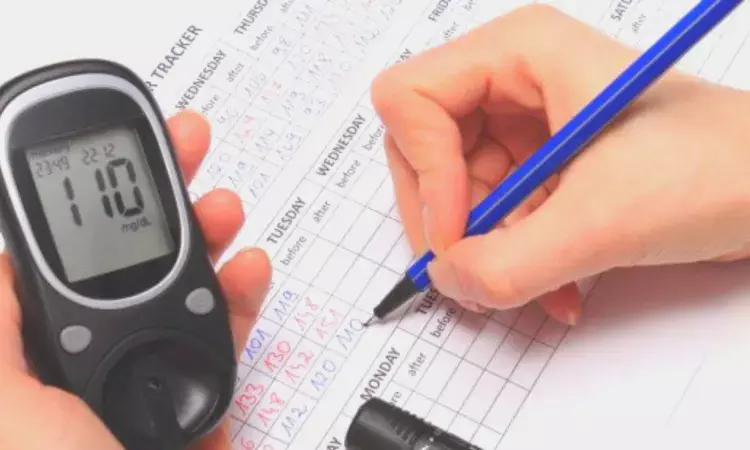- Home
- Medical news & Guidelines
- Anesthesiology
- Cardiology and CTVS
- Critical Care
- Dentistry
- Dermatology
- Diabetes and Endocrinology
- ENT
- Gastroenterology
- Medicine
- Nephrology
- Neurology
- Obstretics-Gynaecology
- Oncology
- Ophthalmology
- Orthopaedics
- Pediatrics-Neonatology
- Psychiatry
- Pulmonology
- Radiology
- Surgery
- Urology
- Laboratory Medicine
- Diet
- Nursing
- Paramedical
- Physiotherapy
- Health news
- Fact Check
- Bone Health Fact Check
- Brain Health Fact Check
- Cancer Related Fact Check
- Child Care Fact Check
- Dental and oral health fact check
- Diabetes and metabolic health fact check
- Diet and Nutrition Fact Check
- Eye and ENT Care Fact Check
- Fitness fact check
- Gut health fact check
- Heart health fact check
- Kidney health fact check
- Medical education fact check
- Men's health fact check
- Respiratory fact check
- Skin and hair care fact check
- Vaccine and Immunization fact check
- Women's health fact check
- AYUSH
- State News
- Andaman and Nicobar Islands
- Andhra Pradesh
- Arunachal Pradesh
- Assam
- Bihar
- Chandigarh
- Chattisgarh
- Dadra and Nagar Haveli
- Daman and Diu
- Delhi
- Goa
- Gujarat
- Haryana
- Himachal Pradesh
- Jammu & Kashmir
- Jharkhand
- Karnataka
- Kerala
- Ladakh
- Lakshadweep
- Madhya Pradesh
- Maharashtra
- Manipur
- Meghalaya
- Mizoram
- Nagaland
- Odisha
- Puducherry
- Punjab
- Rajasthan
- Sikkim
- Tamil Nadu
- Telangana
- Tripura
- Uttar Pradesh
- Uttrakhand
- West Bengal
- Medical Education
- Industry
Self-monitoring effectively controls blood sugar in non-insulin treated diabetes patients: Study

China: Self-monitoring of blood glucose (SMBG) is effective for controlling blood sugar in type 2 diabetes (T2D) patients who do not use insulin, a recent study published in the Journal of General Internal Medicine has shown. Better outcomes were seen with 8-11 times weekly SMBG accompanied by lifestyle adjustments.
SMBG is a valuable tool in diabetes management, but there is controversy about its efficacy and optimal application in T2D patients treated without insulin. Therefore, Chao Zhang, PhD, Capital Medical University, Beijing, China, and colleagues aimed to examine the efficacy of SMBG in controlling the blood sugar levels in T2D patients not treated with insulin and to find the optimal frequency and the most suitable population to benefit from SMBG.
The study included randomized controlled trials that compared self-monitoring of blood glucose with no SMBG or structured SMBG (with defined frequency and timing of glucose measurement, S-SMBG). For this purpose, the researchers retrieved eligible publications from the online databases between January 2000 to April 2022. The following parameters were assessed; -optimal frequency, efficacy and most suitable population for SMBG, for which the authors performed meta-analyses and sub-analyses.
The authors reported the following findings:
- The authors identified twenty-two studies involving 6204 participants; 17 compared SMBG with no SMBG, and four compared SMBG with S-SMBG.
- Compared with no SMBG, SMBG reduced HbA1c (MD −0.30%), and S-SMBG performed better than SMBG (MD −0.23%).
- Subgroup analyses revealed that HbA1c control was better with 8–11 times weekly SMBG (MD −0.35%) versus other frequencies and with lifestyle modifications (MD −0.37%) than with no adjustments.
- The authors did not observe any significant differences in HbA1c between baseline HbA1c subgroups (≤ 8% and > 8%) and between diabetes duration subgroups (≤ 6 years and > 6 years), respectively.
"The results showed SMBG to be effective for HbA1c (glycated haemoglobin) control in non-insulin-treated T2D patients, although detailed monitoring design is lacking," the researchers wrote. "Better outcomes were observed with 8–11 times weekly SMBG and lifestyle adjustment based on the results of SMBG."
About Self-Monitoring of Blood Glucose
SMBG is an integral part of modern therapy for diabetes. SMBG's goal is to collect detailed information on blood glucose levels at many time points to maintain a more constant glucose level. It is recommended that diabetes patients and their healthcare professionals achieve a specific level of blood sugar control and prevent hypoglycemia.
Reference:
Zou, Y., Zhao, S., Li, G. et al. The Efficacy and Frequency of Self-monitoring of Blood Glucose in Non-insulin-Treated T2D Patients: a Systematic Review and Meta-analysis. J GEN INTERN MED (2022). https://doi.org/10.1007/s11606-022-07864-z
Dr Kamal Kant Kohli-MBBS, DTCD- a chest specialist with more than 30 years of practice and a flair for writing clinical articles, Dr Kamal Kant Kohli joined Medical Dialogues as a Chief Editor of Medical News. Besides writing articles, as an editor, he proofreads and verifies all the medical content published on Medical Dialogues including those coming from journals, studies,medical conferences,guidelines etc. Email: drkohli@medicaldialogues.in. Contact no. 011-43720751


